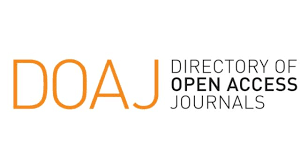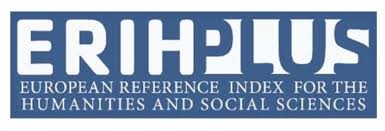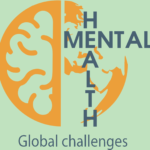Ethics Statement
Ethics Statement
The journal follows the recommendations and core practices of the Committee on Publication Ethics (COPE, https://publicationethics.org/core-practices ) regarding ethical policies and dealing with misconduct. Misconduct includes falsifying data, plagiarizing others' works, double-publication, citation manipulation, data falsification, inappropriate author attribution, and breach of confidentiality.
In the case of study on patients, volunteers, students, and/or any individual or group that may be identifiable, the author must have ethics committee approval and informed consent of the participants. Each case will be considered by the Editor-in-Chief, and in all cases the author (or reviewer) will be contacted directly.
The Mental Health: Global Challenges Journal is committed to ethical principles and these are interwoven in the publishing process. As a result, clear rules and regulations have been communicated to editors and reviewers which support the ethical expectations associated with Mental Health: Global Challenges Journal (for more information please visit “roles & responsibilities”, “privacy statement”). The Journal also complies with the Committee on Publication Ethics Guidelines for Peer Reviewers (https://publicationethics.org/files/Ethical_Guidelines_For_Peer_Reviewers_2.pdf) which provides a comprehensive guide to the ethics of peer review.
Important information on ethical issues (COPE’s guidelines) that might be helpful for authors as well as editors:
- What to do: Suspected redundant publication in a submitted manuscript
- What to do: Suspected redundant publication in a published article
- What to do: Suspected fabricated data in a submitted manuscript
-What to do: Suspected fabricated data in a published article
Authors who wish to submit a manuscript to the journal must contribute significantly to the scientific body of knowledge, as well as follow professional academic ethical principles as they are accountable for their work. They must carefully review and approve the final version of the manuscript before passing to our typesetting team for publication.
The Mental Health: Global Challenges Journal follows the Creative Commons Attribution License International CC-BY-NC international License and author/s must agree to the terms under this license in order to have their manuscript published in the Mental Health: Global Challenges Journal.
The Mental Health: Global Challenges Journal has provided clear guidelines on copyright for authors, reviewers and editors on the website (for more information please visit “authors guidelines”) and expects authors and editors to follow these guidelines very carefully.
The Mental Health: Global Challenges Journal expects that not only the corresponding author, but all the authors involved in the manuscript are responsible and should be involved in all communication associated with their manuscript submitted to the journal. All authors must acknowledge and confirm the originality of the data and manuscript as well as agree to the copyright contract provided by Mental Health: Global Challenges Journal. Author/s must confirm that the manuscript is original and has not been published previously or is under consideration by any other journal.
It is the authors’ responsibility to seek permission and approval from other journals if they use any information including data or materials that have been published in any other journal.
Failure to do so may result in the rejection of the paper and the authors being banned from future submission to the Mental Health: Global Challenges Journal. Moreover, author/s are required to acknowledge if they have received any funds or financial aid or assistance from any other contributor who is not part of the list of authors.
The Mental Health: Global Challenges Journal takes the reviewing process very seriously and it is kept confidential, so that submitted material is not shared with any third party. Also, we strongly recommend that author/s keep all information related to their manuscript secure until the final manuscript is approved for publication.
Manuscripts (main text without author(s) information) will be reviewed with due respect for authors’ and reviewers’ confidentiality. Our editors have been instructed to not disclose information about manuscripts (including their receipt, content, status in the reviewing process, criticism by reviewers, or ultimate fate) to anyone other than the authors and reviewers. Manuscripts sent for review are privileged communications. Therefore, reviewers and members of the editorial staff must respect the authors’ rights by not publicly discussing the authors’ work or appropriating their ideas before the manuscript is published. Reviewers may not make copies of the manuscript for their files and will not share it with others, except with the editor’s permission. Reviewers should return or destroy copies of manuscripts after submitting reviews. Editorial Board members and Reviewers should generally not communicate directly with the authors. All necessary information regarding the progress of the peer review can be obtained from the Editorial Office.
The Editor-in-Chief and Editorial board members work closely with our reviewers to make sure author/s are given full and completed review feedback on a timely basis to comply with our quality assurance




 E-mail us: viktor.vus@mhgcj.org
E-mail us: viktor.vus@mhgcj.org 